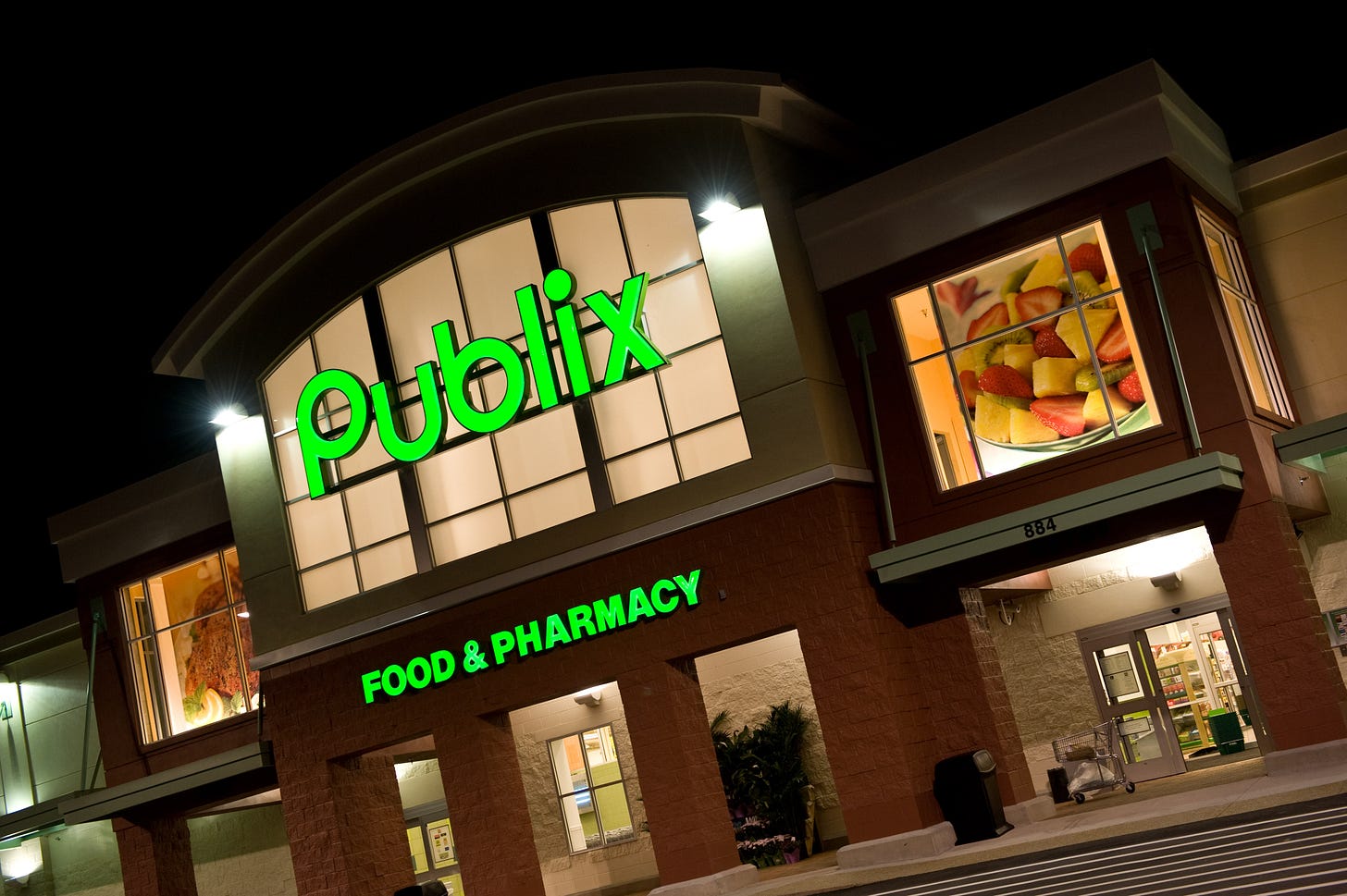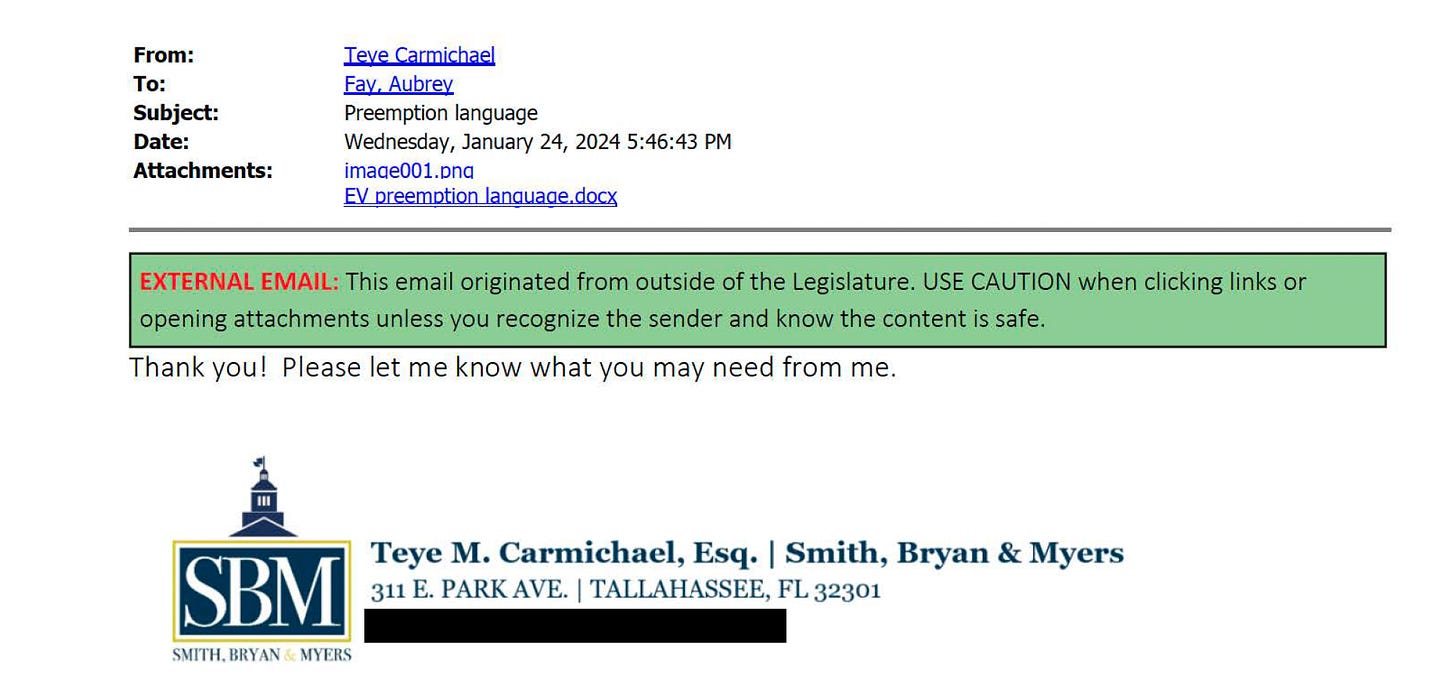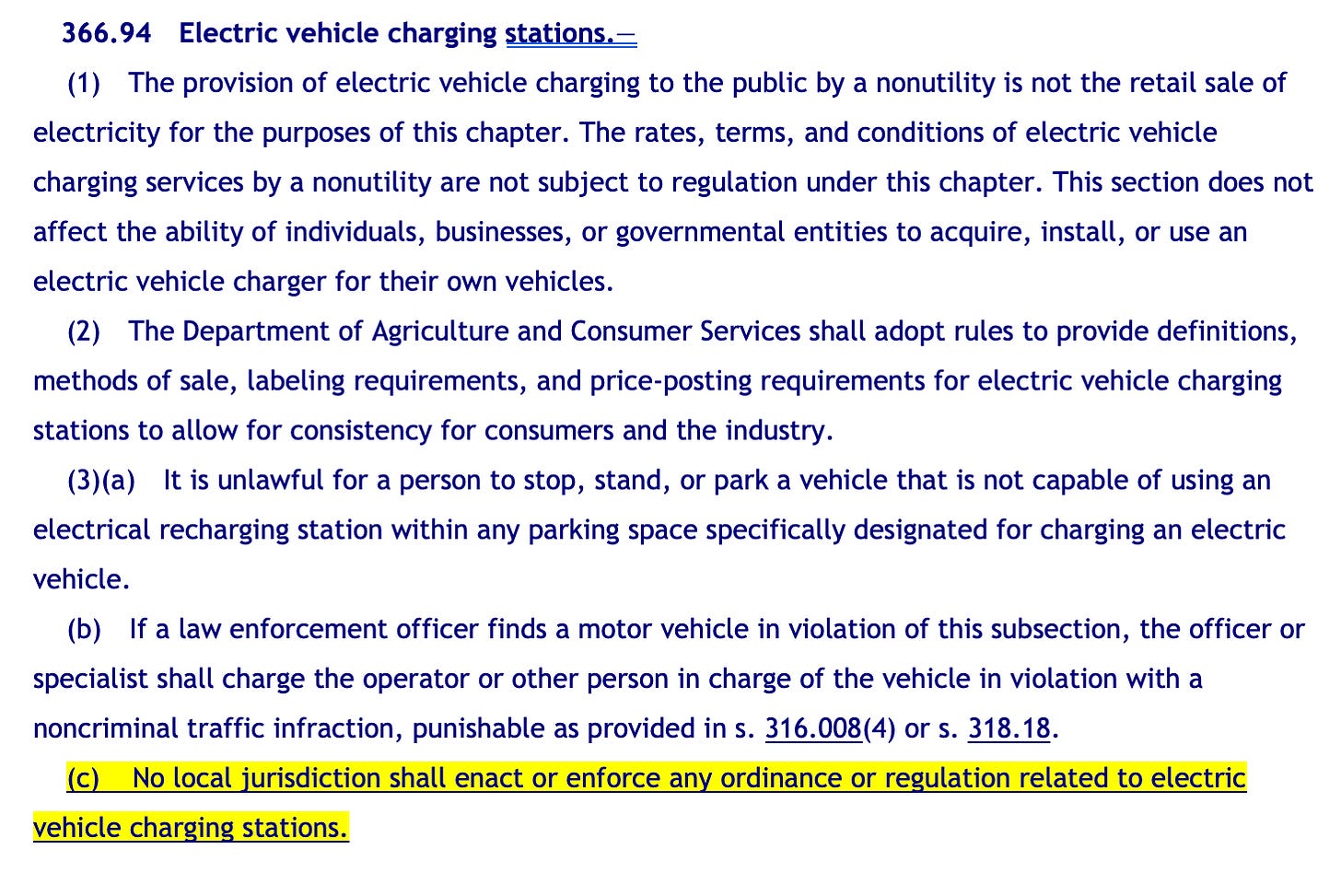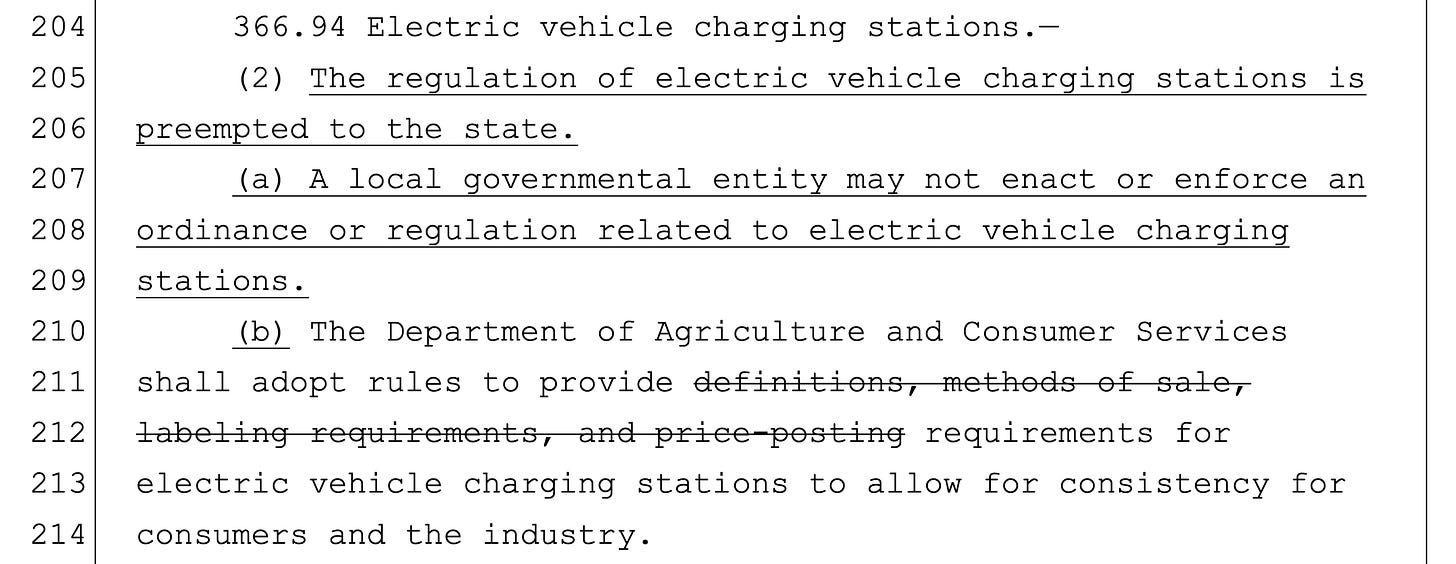Publix sought to block electric vehicle rules, records show
A lobbyist for grocery giant Publix Super Markets sent a proposal to Florida lawmakers to block rules that require developers to pre-wire their parking lots for electric vehicle charging stations.

This is Seeking Rents, a newsletter and podcast devoted to producing original journalism — and lifting up the journalism of others — that examines the many ways that businesses influence public policy across Florida, written by Jason Garcia. Seeking Rents is free to all. But please consider a voluntary paid subscription, if you can afford one, to help support our work.
Grocery store giant Publix Super Markets pushed Florida lawmakers to kill local rules meant to support electric vehicles, according to an email obtained in a public records request.
Records show that a lobbyist for Publix emailed a key lawmaker partway through this year’s session of the Florida Legislature with a proposal to stop cities and counties around the state from enforcing any local laws related to electric vehicle charging stations.
The Publix lobbyist sent the proposed legislation to an aide to Rep. Bobby Payne (R-Palatka), who was sponsoring a sweeping energy bill that also made it easier for gas companies to build pipelines, prohibited the development of offshore wind energy, and erased most references to climate change in state law.

Publix’s plan to stop local governments from regulating EV charging stations was never added to Payne’s energy legislation. But Floridas’s Republican-controlled Legislature passed a nearly identical provision as part of another bill: Senate Bill 1084, a wide-ranging package of changes to various agriculture and consumer-safety laws.
Records show that Publix registered to lobby lawmakers on SB 1084, too.

Publix — the biggest corporate campaign contributor in Florida politics — did not respond to requests for comment. And none of the company’s lobbyists ever testified in public on the issue in Tallahassee. So it’s unclear why the grocery store chain wanted to block EV charging station rules.
But a number of cities and counties around the state have in recent years enacted rules that require commercial developers to incorporate some charging station infrastructure into their developments. Often known as “EV readiness” or “make ready” ordinances, these local laws require developers to pre-wire some of their parking spaces so that charging stations can easily be installed in the future — without expensive retrofitting costs.
In Miami-Dade County, for instance, a commercial developer must generally install the circuitry needed for future charging stations into at least 20 percent of their spaces. Leon County and the cities of Orlando and Tampa have similar laws.
But EV readiness ordinances increase upfront costs for developers — and Publix, which turned a $4.3 billion profit last year, is a major developer. The company built 17 new grocery stores in Florida last year and had another 26 under construction at the start of this year, according to company regulatory filings. Publix has about 859 grocery stores total in Florida.
Cities and counties would be prohibited from enforcing such ordinances under SB 1084.

The lawmakers who sponsored the legislation made clear during public debates that they were specifically targeting local EV readiness rules.
“Businesses are feeling pressure to spend that extra money to have all that set aside,” Sen. Jay Collins (R-Tampa) said during a Feb. 8 hearing on SB 1084.
Neither Collins nor Rep. Danny Alvarez, a Republican from Hillsborough County who sponsored the House version of the bill, responded to requests for comment.
There are no statewide EV readiness rules for developers. But the Florida Department of Agriculture and Consumer Services may develop some in the future. “Once [SB 1084] becomes law, our office will adopt a rule creating a comprehensive statewide standard on electric vehicle charging stations,” said Aaron Keller, a spokesperson for the agency.
Gov. Ron DeSantis has yet to sign SB 1084 into law. And a spokesperson declined to say whether he will.
But it seems unlikely that Florida’s Republican governor would veto the legislation.
That’s because the bill also includes another provision that would prohibit the sale in Florida of meat cultivated from animal cells — an emerging technology more commonly known as “lab-grown meat.” Boosters believe the technology could eventually help combat climate change by easing global demand for industrial livestock operations, which are major emitters of greenhouse gases.
And DeSantis, who is constantly in search of new culture war campaigns that could earn him more attention from national right-wing media, has already embraced the proposed lab-grown meat ban.



As many people that has EVs now you’d think Publix would welcome a charging station for their shoppers. I can only imagine what they’re lobbying for in Georgia. I know they’re finishing up a new one in Dahlonega due to so many that fled Florida’s high insurance and cost of living have moved to the N GA mountains like me. Dawsonville had to put up new subdivisions for all the expats.
Never underestimate the stupidity of humans running corporations that are motivated by greed. Conveniently pretending that EVs are not required to ameliorate accelerated global warming to Prewire charging locations in new lots is stupid and short sighted. The biggest impediment to expansion of EVs is lack of charging stations. How can Publix front a facade of green and friendly that doesn’t not include their parking lots?? Sad.